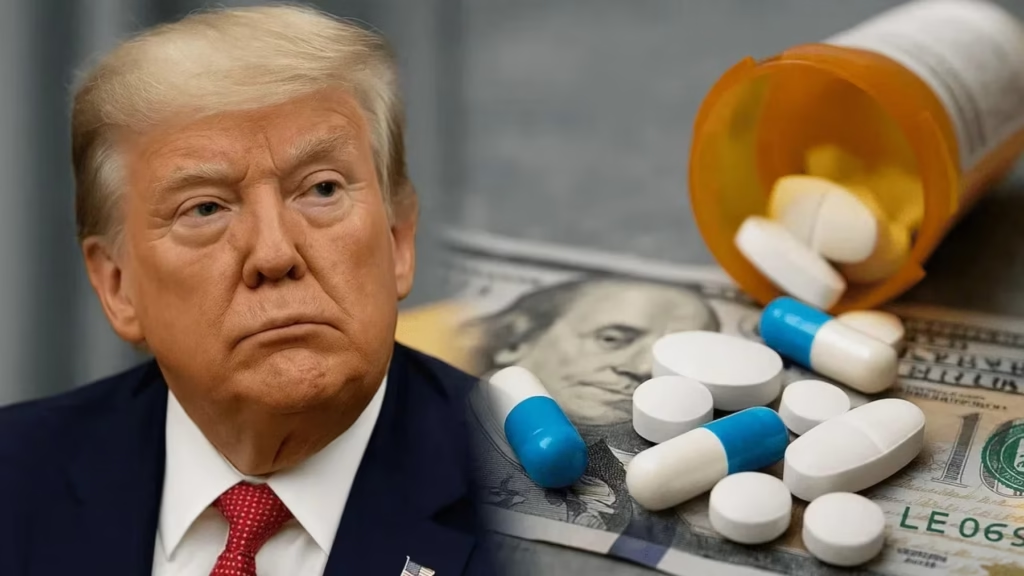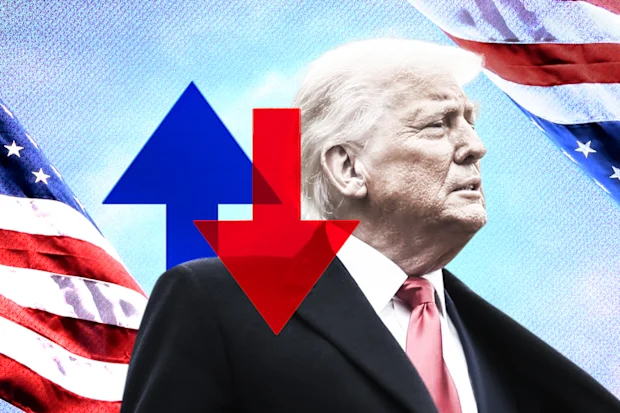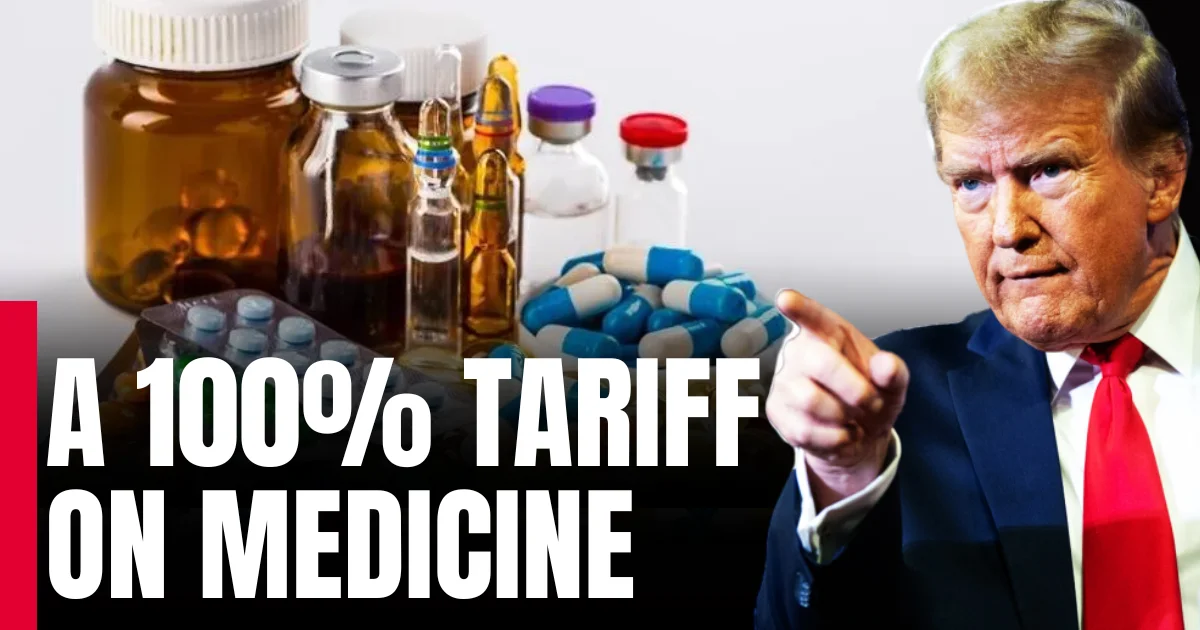Trump to impose a 100% tariff on imported brand-name drugs starting Oct 1, pushing pharma firms to manufacture in the US. Read the full impact analysis.
Table of Contents
Trump Imposes 100% Tariff on Imported Drugs Starting October 1
Introduction
President Donald Trump announced that beginning October 1, 2025, certain brand-name and patented drugs imported into the United States will face a 100% tariff—unless the drugmaker is actively building manufacturing facilities within the country. The move is intended to boost domestic pharmaceutical production and strengthen the nation’s drug supply chain, but experts caution that it may have unintended consequences on prices and availability.

Why Trump is Targeting Pharmaceutical Imports
- Drug costs: Trump argues tariffs will pressure companies to cut prices.
- Domestic production: Only drugmakers with plants under construction in the US will be exempt.
- Economic strategy: The move aligns with Trump’s broader policy of using tariffs to bring manufacturing jobs back to America.
The White House clarified that projects already underway will also be exempt until completion.
Big Pharma’s Response – Billions in New US Investments
Major pharmaceutical firms have taken the threat seriously:
- Eli Lilly announced a $6.5 billion plant in Houston and another $5 billion facility in Virginia.
- European drugmakers including AstraZeneca, Novartis, GSK, and Sanofi are expanding US operations.
- US-based investments from global pharma are expected to exceed hundreds of billions of dollars in the coming years.
Despite these moves, analysts say the impact on larger drugmakers may be limited since most already have US facilities.
Winners and Losers of the Tariff Policy

Likely Unaffected
- Big pharmaceutical players with domestic manufacturing or expansion plans.
- EU drugmakers, thanks to an earlier trade agreement capping tariffs at 15%.
- Indian exporters of generic drugs, which remain exempt.
At Risk
- Smaller foreign manufacturers without US facilities.
- Asian companies like WuXi AppTec, Chugai, and Daiichi, which saw stock declines after the announcement.
- US consumers, who may face higher out-of-pocket costs if companies pass on tariff expenses.
Concerns from Industry Experts
Analysts remain skeptical about whether tariffs will lower drug prices:
- PhRMA, the industry’s leading association, warns tariffs could divert funds from R&D and raise healthcare costs.
- Supply chain experts note that ingredients are globally sourced, meaning US reliance on foreign components won’t disappear overnight.
- Economists highlight that stockpiling by importers may temporarily soften the blow but not eliminate long-term effects.
Global Implications of Trump’s Pharma Tariffs
- The EU has negotiated protection against tariffs beyond 15%, limiting disruption for European suppliers.
- Japan also secured similar exemptions.
- India, which supplies nearly 47% of US generic drugs, is currently safe but monitoring closely.
- If tariffs extend to generics in the future, drug shortages and price spikes could become a real risk.
What Happens Next?
Trump has previously hinted at tariffs of up to 250% on drug imports, suggesting this 100% levy may only be the beginning. For now:
- The October 1 deadline looms for compliance.
- Companies without US operations face a huge competitive disadvantage.
- Patients and healthcare providers may see uncertain pricing in the months ahead.
🔹 FAQs
Q1. Which drugs are affected by Trump’s 100% tariff?
Only brand-name and patented drugs imported into the US are subject to the tariff. Generic drugs remain exempt.
Q2. When will the drug tariffs take effect?
The tariffs will take effect on October 1, 2025.
Q3. How can pharmaceutical companies avoid the tariffs?
Drugmakers must be building or expanding US manufacturing plants to qualify for exemption.
Q4. Will the tariffs lower drug prices in the US?
Experts say tariffs are unlikely to reduce prices, as costs may be passed to consumers and insurers.
Q5. How will this affect global pharma companies?
Larger firms like Eli Lilly, AstraZeneca, Novartis, and Sanofi are investing in US plants, while smaller Asian firms may struggle under the policy.
Conclusion
Trump’s decision to impose a 100% tariff on imported brand-name drugs marks a dramatic escalation in US pharmaceutical trade policy. While it may incentivize domestic drug production, the policy risks higher consumer costs, strained global supply chains, and slower drug innovation.
👉 What’s your take? Will tariffs truly make medicines cheaper, or could they backfire on American patients? Share your thoughts below.

